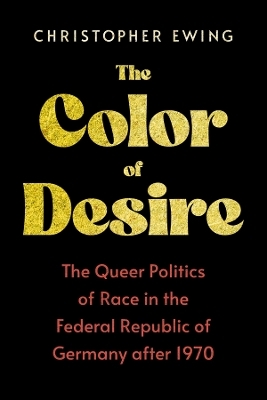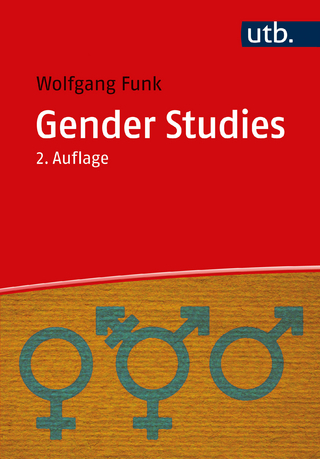
The Color of Desire
Cornell University Press (Verlag)
978-1-5017-7336-5 (ISBN)
Far from being discrete political trajectories, racist and antiracist politics were closely connected, as activists worked across groups to develop their visions for queer politics. Ewing describes not only how AIDS workers, gay tourists, white lesbians, queer immigrants, and Black feminists were connected in unexpected ways but also how they developed contradictory concerns that comprised the full landscape of queer politics. Out of these connections, which often exceeded the bounds of the Federal Republic, arose new forms of queer fascism as well as their multiple, antiracist contestations. Both unsettled the appeals to national belonging, or "homonationalism," on which many white queer activists based their claims. Thus, the story of the making of homonationalism is also the story of its unmaking.
The Color of Desire explains how the importance of racism to queer politics cannot—and should not—be understood without also attending to antiracism. Actors worked across different groups, making it difficult to chart separable political trajectories. At the same time, antiracist activists also used the fractures and openings in groups that were heavily invested in the logics of whiteness to formulate new, antiracist organizations and, albeit in constrained ways, shifted queer politics more generally.
Christopher Ewing is Assistant Professor at Purdue University. His research focuses on the intersections of queer history and the history of race in modern Germany. He has previously published in Journal of the History of Sexuality, Sexualities, Bulletin of the German Historical Institute, and Sexuality & Culture.
Introduction: New Year's Eve, 1970
Part I: An International Movement
1. Sex Tourism in the 1970s and the End of Permissive Islam: Disappointed in Casablanca
2. The European Exception: International Solidarity between Gay Liberation and the Iranian Revolution
3. Antiracism and the AIDS Crisis, or Homonationalism's Rocky Start
Part II: Activism and the State
4. Making Homophobic Migrants out of Neo-Nazis: Gay Rights after Unification
5. Antiracist Gains and the Emergence of Queer Fascism in the Twenty-First Century: Homophobia's Side Effects
Epilogue: What Happened to Homonationalism?
| Erscheinungsdatum | 02.12.2023 |
|---|---|
| Zusatzinfo | 4 Halftones, black and white |
| Verlagsort | Ithaca |
| Sprache | englisch |
| Maße | 152 x 229 mm |
| Gewicht | 907 g |
| Themenwelt | Sozialwissenschaften ► Ethnologie |
| Sozialwissenschaften ► Soziologie ► Gender Studies | |
| ISBN-10 | 1-5017-7336-4 / 1501773364 |
| ISBN-13 | 978-1-5017-7336-5 / 9781501773365 |
| Zustand | Neuware |
| Informationen gemäß Produktsicherheitsverordnung (GPSR) | |
| Haben Sie eine Frage zum Produkt? |
aus dem Bereich


